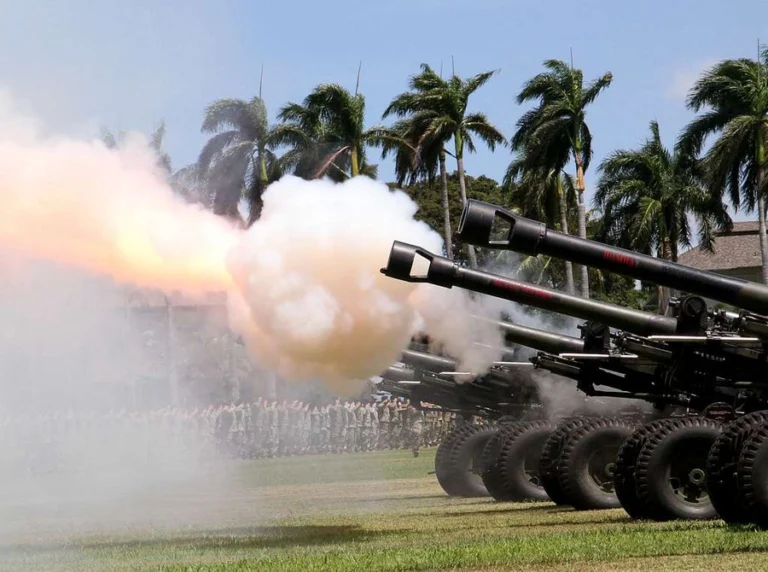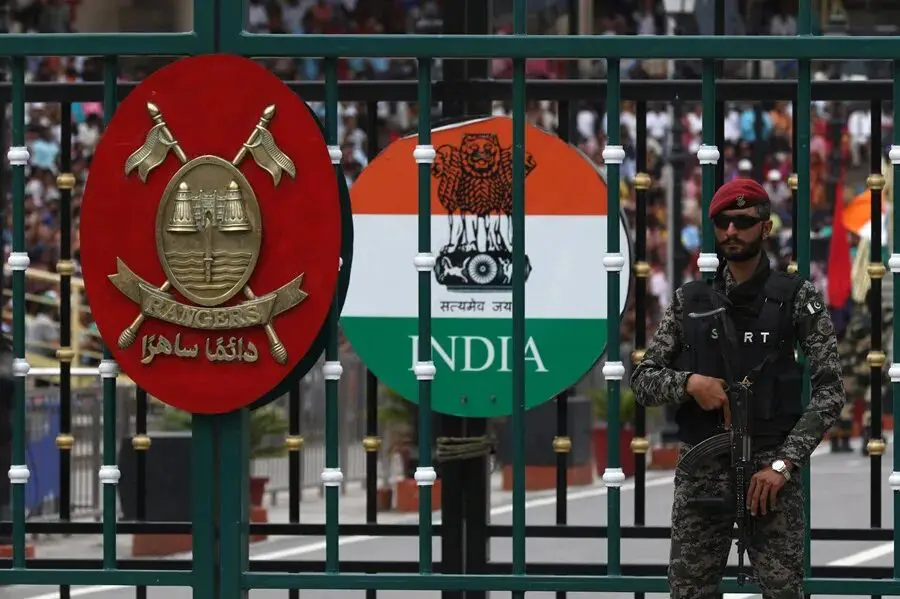Thai Airstrike Kills Civilians as Border Conflict with Cambodia Intensifies
A Thai F-16 airstrike has left nine civilians dead and reignited a long-standing border conflict, with both sides accusing each other of military aggression.

Tanks deployed along the Thai-Cambodian border amid rising military confrontation. Photo: @TypeThreeNews
July 24, 2025 Hour: 4:40 am
A Thai F-16 airstrike into Cambodian territory on Thursday killed at least nine civilians, including a child, escalating a long-running border dispute and triggering diplomatic expulsions between the two Southeast Asian nations.
RELATED:
Protest Crackdowns Intensify in Argentina as Milei Implements Austerity
Violence erupted along the Thailand-Cambodia border as Thai military forces launched an aerial strike into Cambodian territory, in what they described as a pre-planned operation against a military target. The Cambodian government condemned the attack as a violation of its sovereignty that left civilian infrastructure damaged and communities displaced.
“We have used air power against military targets as planned,” said Thai army deputy spokesperson Richa Suksuwanon, confirming that one of six deployed F-16 jets had bombed a site across the border. Cambodia’s Ministry of Defence reported that two bombs struck a road and called the attack “reckless and brutal.”
The clashes occurred near the Ta Moan Thom temple, a disputed area along the 817-kilometer border, and followed a landmine explosion earlier this week that injured two Thai soldiers. Thailand accused Cambodia of laying new mines in the area—allegations Phnom Penh rejected, stating the devices likely originated from decades-old civil conflict.
In the wake of the strike, Thailand closed several border crossings and recalled its ambassador from Phnom Penh. Cambodia’s envoy in Bangkok was also expelled. On the ground, Thai authorities reported that artillery fire from Cambodian forces struck both military and civilian areas, including a hospital.
At least nine civilians have been killed in the Thai provinces of Surin, Sisaket, and Ubon Ratchathani. In Surin, district authorities evacuated over 40,000 residents from 86 villages. “Artillery shells fell on homes,” said district chief Sutthirot Charoenthanasak. “Two people have died.”
Footage aired by local media showed black smoke rising from a gas station in Sisaket province. Six people were killed and ten others injured at the site, the Thai military reported. Another death occurred in Ubon Ratchathani.
“The Thai Army condemns Cambodia for using weapons to attack civilians in Thailand. Thailand is ready to protect sovereignty and our people from inhumane action,” the army said in a statement.
Cambodia maintains that its troops acted in self-defense after what it described as an unprovoked Thai incursion. A defense ministry spokesperson said Cambodian forces only responded after Thai soldiers crossed into its territory. Cambodia also rejected accusations of recent landmine placement, arguing the explosives may be remnants of past wars. According to demining groups, millions of landmines remain scattered across Cambodian territory.
The border region has witnessed multiple flare-ups over the past two decades, notably in 2011 during a week-long artillery exchange. This latest episode marks the most serious escalation in years, with fears growing of further violence if diplomacy fails.
The political fallout extended into Thailand’s domestic scene, as Prime Minister Paetongtarn Shinawatra was suspended by the Constitutional Court after details of a private call with Cambodia’s former leader Hun Sen were leaked. Hun Sen stated on Facebook that two Cambodian provinces had come under Thai shelling.
Thailand’s acting Prime Minister Phumtham Wechayachai acknowledged the severity of the situation. “We have to be careful,” he told reporters, adding that the government would act in accordance with international law.
The crisis unfolds at a time when unresolved border disputes continue to undermine stability in Southeast Asia, a region where Cold War legacies, colonial-era boundaries, and militarized nationalism remain potent sources of friction. Regional actors have yet to propose formal mediation, and ASEAN has not issued an official response.
As evacuations expand and diplomatic ties fray, the risk of prolonged conflict looms large. Without immediate de-escalation, the Thai-Cambodian standoff threatens to spiral into a broader crisis—testing both the limits of bilateral diplomacy and the credibility of regional mechanisms for peacekeeping.
Author: MK
Source: Reuters


